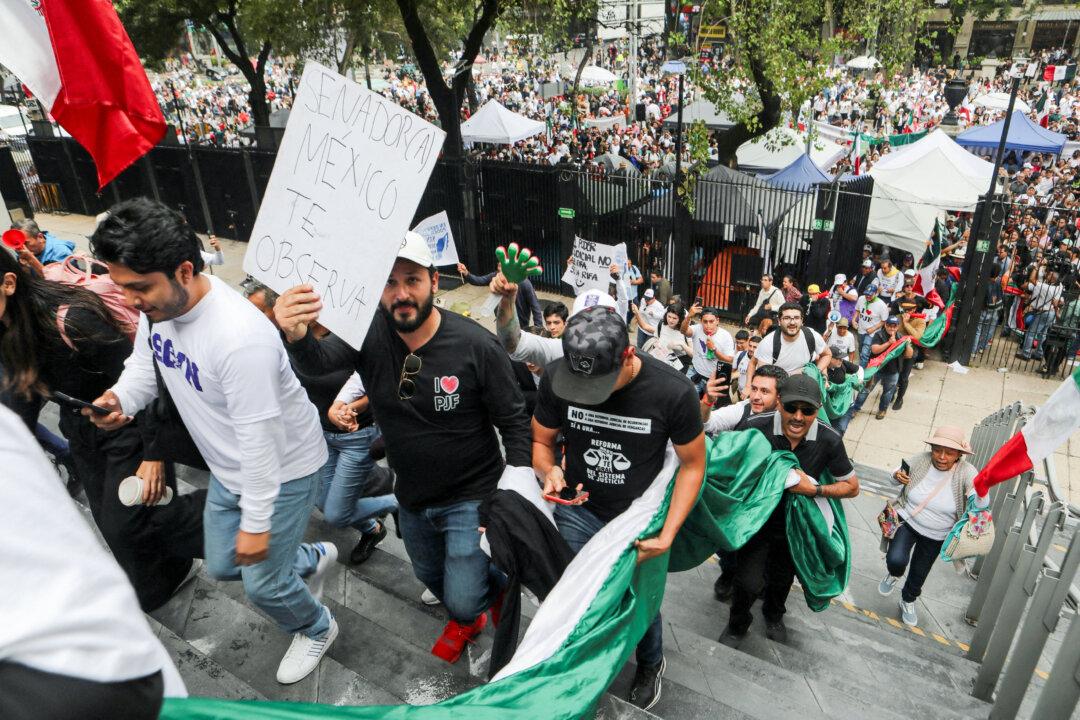Hundreds of protesters forced their way into Mexico’s Senate on Sept. 10 during a debate about controversial plans to overhaul the country’s judiciary.
The Senate had been due to vote on the judicial reform plans, which have been put forward by Mexico’s ruling party, Morena.





